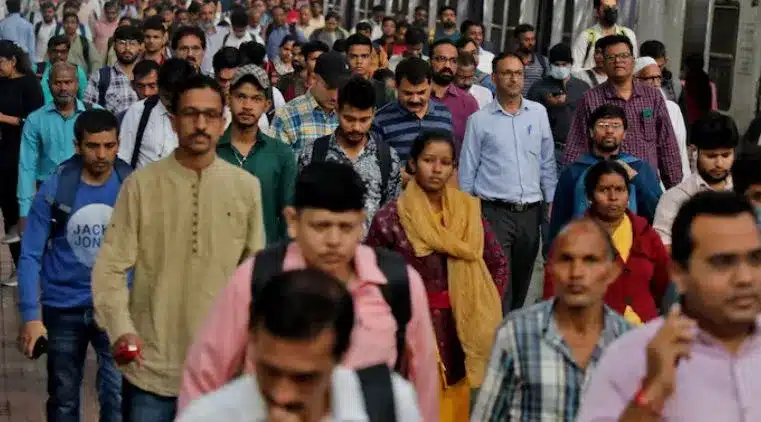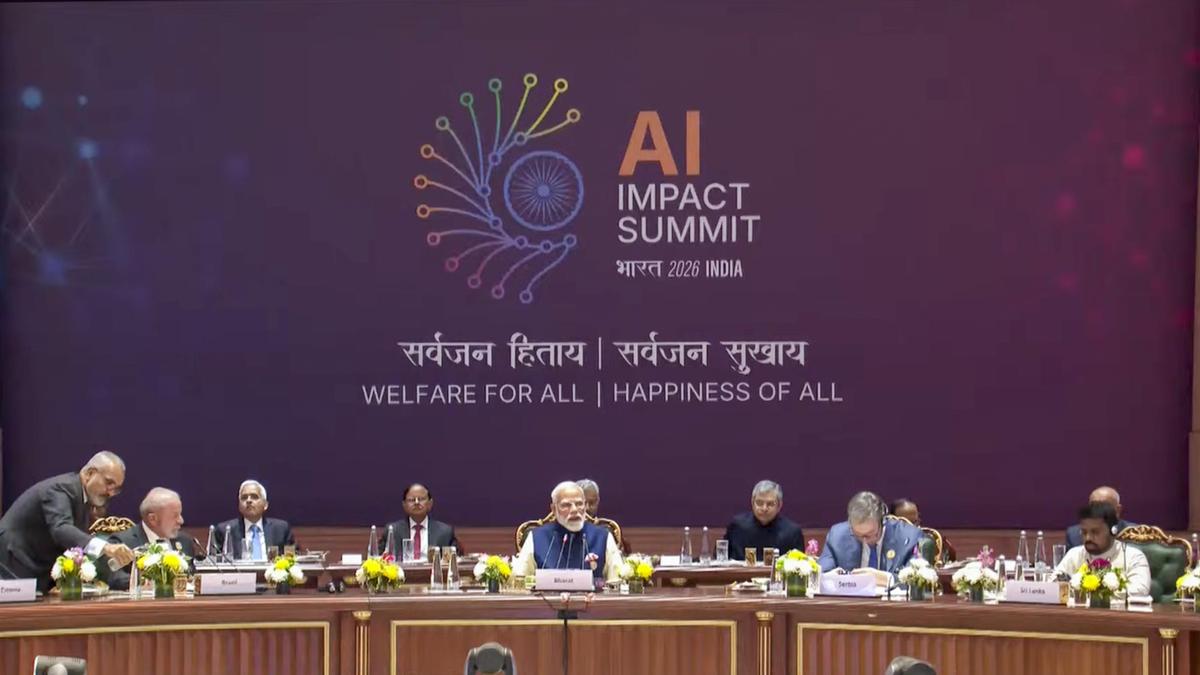What’s in today’s article?
- Why in News?
- Census in India
- Census and delimitation
- Demand for Caste Data in Upcoming Census
Why in News?
The Centre is reportedly preparing to conduct the Census, which was delayed in 2021 due to Covid-19. Although official confirmation is pending, the Census is expected to begin next year.
This exercise is crucial as it ties into two major issues: delimitation of Parliamentary constituencies, stalled for five decades, and the implementation of women’s reservation in Parliament.
India’s Census, which has followed a decadal schedule since 1881, missed its 2021 mark for the first time. While the pandemic was largely over by 2022, allowing a Census in 2023 or 2024, the government appears to have postponed it to align with planned constituency reorganisation.
Census in India
- About
- Population Census provides basic statistics on state of human resources, demography, culture and economic structure at local, regional and national level.
- Beginning in the year 1872, when the first census was conducted non-synchronously, the census enumeration exercise in India is carried out in every 10 years.
- The first synchronous census was taken under British rule in 1881, by W.C. Plowden, Census Commissioner of India.
- The responsibility of conducting the decadal census rests with the Office of the Registrar General and Census Commissioner of India, Ministry of Home Affairs.
- Legal/Constitutional basis of Census
- Population census is listed in Union List (entry 69) of Seventh Schedule in Indian Constitution.
- Census is conducted under the provisions of the Census Act, 1948.
- Process of census enumeration
- The Census Operations in India have been carried out in two phases:
- Houselisting and Housing Census and
- Population Enumeration.
- The Population Enumeration follows the Housing Census within a gap of six to eight months.
- Population enumeration happens in February, with figures representing the population as of midnight on March 1 of the Census year.
- In Population Enumeration phase each person is enumerated and her/his individual particulars like Age, Marital status, Religion, mother tongue etc.
Census and delimitation
- Delimitation and Its Suspension
- Delimitation, mandated by the Constitution, adjusts the number of Parliamentary and Assembly constituencies based on population, ensuring equal representation.
- It ensures a fair division of geographical areas so that all political parties or candidates contesting elections have a level playing field in terms of a number of voters.
- Article 82 and Article 170 of the Constitution empowers the Parliament to readjust the allocation of seats in the Lok Sabha and the Legislative Assemblies of States respectively, after every census.
- However, this process has been suspended since 1976 due to political disagreements.
- Following a 2001 Census, the 2002 delimitation exercise only redrew constituency boundaries without changing their number.
- Southern states oppose delimitation, fearing that changes would reduce their representation despite their success in population control.
- As of the 84th Constitutional Amendment (2001), delimitation is postponed until at least 2026, thus making 2031 the earliest opportunity for it if based on the Census.
- Immediate delimitation might not be possible
- The 84th Constitutional Amendment restricts delimitation based on Census data from the first Census “taken after the year 2026.”
- Thus, even if the Census begins in 2025 and completes in 2026, immediate delimitation might not be possible unless the amendment is revised.
- An amendment to the existing provision may be required if delimitation is to proceed in time for the 2029 Lok Sabha elections.
- Challenges of Political Consensus and Southern States’ Concerns
- The suspension of delimitation since 1976 stems from political disagreements, especially with Southern states.
- These states argue that accounting for current population figures would unfairly reduce their Parliamentary representation, penalizing them for successful population control.
- Their support for delimitation may hinge on receiving compensations or other reassurances.
- Additionally, the 128th Constitutional Amendment, passed to reserve 33% of seats in Parliament and State Assemblies for women, requires a delimitation exercise before implementation, further tying delimitation to upcoming political reforms.
- Role of the 16th Finance Commission
- The 16th Finance Commission, due to submit its report next year, will address the distribution of financial resources between the Centre and states, which could impact state-level negotiations regarding delimitation.
Demand for Caste Data in Upcoming Census
- The demand
- There is a growing expectation that the next Census may include caste data, addressing demands from some political parties for a caste census.
- Caste census means inclusion of caste-wise tabulation of India’s population in the Census exercise.
- Background
- Caste was enumerated in British India Censuses (1881-1931).
- Post-Independence, the 1951 Census excluded caste enumeration except for SCs and STs, who continue to be counted.
- Caste data were collected for the 2011 census but the data was never made public.
- In 1961, the GOI recommended states conduct their own surveys for state-specific OBC lists, as there were no central reservations for OBCs at that time.
- Though Census is a Union subject, the Collection of Statistics Act, 2008 allows States and local bodies to gather necessary data, as seen in Karnataka (2015) and Bihar (2023).
Q.1. Why was the Census originally delayed until 2025?
The Census was delayed from 2021 due to the Covid-19 pandemic. The government has now decided to begin the Census in 2025 to align it with planned constituency reorganization..
Q.2. What is the significance of including caste data in the Census?
Including caste data in the Census would address long-standing demands from various political parties for a caste census, helping to inform policy decisions and reservations for socially disadvantaged groups.
News: The next Census | Census India | Indian Express | India Today
Last updated on February, 2026
→ UPSC Notification 2026 is now out on the official website at upsconline.nic.in.
→ UPSC IFoS Notification 2026 is now out on the official website at upsconline.nic.in.
→ UPSC Calendar 2026 has been released.
→ UPSC Final Result 2025 is expected to be released in the second week of April 2026.
→ Check out the latest UPSC Syllabus 2026 here.
→ Join Vajiram & Ravi’s Interview Guidance Programme for expert help to crack your final UPSC stage.
→ UPSC Mains Result 2025 is now out.
→ UPSC Prelims 2026 will be conducted on 24th May, 2026 & UPSC Mains 2026 will be conducted on 21st August 2026.
→ The UPSC Selection Process is of 3 stages-Prelims, Mains and Interview.
→ Prepare effectively with Vajiram & Ravi’s UPSC Prelims Test Series 2026 featuring full-length mock tests, detailed solutions, and performance analysis.
→ Enroll in Vajiram & Ravi’s UPSC Mains Test Series 2026 for structured answer writing practice, expert evaluation, and exam-oriented feedback.
→ Join Vajiram & Ravi’s Best UPSC Mentorship Program for personalized guidance, strategy planning, and one-to-one support from experienced mentors.
→ Check UPSC Marksheet 2024 Here.
→ UPSC Toppers List 2024 is released now. Shakti Dubey is UPSC AIR 1 2024 Topper.
→ Also check Best UPSC Coaching in India




















